Scroll down for a transcription of this episode
Episode summary:
What happens when we pause and open up to ideas that we didn’t think of ourselves? This episode is about intellectual humility, the ability to surrender to the idea that we might not have all the information or may not be right. Our guest is Kelly Corrigan, a best-selling author and host of PBS talk show Tell Me More and podcast Kelly Corrigan Wonders. Her teams look to her for direction, but she wanted to see what would happen if she paused more to ask them questions, and found it totally changed her approach to both her work and family life. We also explore science around the subtle ways we react differently to people we disagree with, and how intellectual humility can change that.
Try this practice: Cultivate Intellectual Humility
If you can, write out your answers.
When you encounter information or an opinion that contradicts your opinion or worldview, ask yourself questions like these:
Why do you disagree?
Are you making any assumptions? Might those assumptions be wrong?
How did you come to your opinion?
Think about the scenario from the perspective of a person who disagrees with you. Try to imagine how they came to believe what they believe:
What information might they be basing their opinion off of?
What values do you think they’re weighing in how they think about this topic?
Can you imagine how they came to hold those values?
3. Tap into your intellectual humility:
Identify places where, before, you didn’t acknowledge the limitations of what you know
Now that you’ve worked to see this issue from another person’s point of view, do you see more value in their perspective?
What other ways do you engage with viewpoints that challenge your own? Do you notice any patterns?
Today’s guests:
Kelly Corrigan is the author of five books. She’s also the host for PBS’s longform interview show, Tell Me More and Kelly Corrigan Wonders.
Check out Kelly’s website: https://www.kellycorrigan.com
Follow Kelly on Twitter: https://twitter.com/corrigankelly
Follow Kelly on Instagram: https://www.instagram.com/kellycorrigan/
Mark Leary is a psychologist and emeritus professor at Duke University.
Learn more about Mark and his work: https://sites.duke.edu/leary/
Check out Mark’s research on Google Scholar: https://tinyurl.com/p8ayz8dn
Resources from The Greater Good Science Center:
What Does Intellectual Humility Look Like? https://tinyurl.com/5n949h69
Five Reasons Intellectual Humility is Good for You: https://tinyurl.com/2ce3jrmc
Intellectual Humility Quiz: https://tinyurl.com/574k99fs
Three Reasons for Leaders to Cultivate Intellectual Humility: https://tinyurl.com/2s4ecda6
How to Know if You’re Actually Humble: https://tinyurl.com/y8js44v
More Resources on Intellectual Humility
Vox - Intellectual humility: The importance of knowing you might be wrong: https://tinyurl.com/2cryd336
Financial Times - Why Intellectual Humility Matters: https://tinyurl.com/5n84hsh7
Psych Central - How Humility Strengthens Your Relationship: https://tinyurl.com/2fj9a4wh
University of Notre Dame - To Make Better Decisions, Get More Comfortable Saying “I Don’t Know” https://tinyurl.com/3npysxh8
Tell us about your thoughts on intellectual humility. Email us at happinesspod@berkeley.edu or use the hashtag #happinesspod.
Help us share The Science of Happiness!
Leave us a 5-star review on Apple Podcasts or share this link with someone who might like the show: https://tinyurl.com/2p9h5aap
This episode was supported by a grant from the John Templeton Foundation, as part of our project on “Expanding Awareness of the Science of Intellectual Humility.” For more on the project, go to www.ggsc.berkeley.edu/IH.
Transcription
Kelly Corrigan: I’ve been feeling somewhat unsatisfied in my work. Like I’m, I’m satisfied when I pull up and look over the whole thing and think this podcast has been really generative for me. This is good stuff. But when I’m in it, when I’m at eye level with the work, I feel less satisfied. I’ve made five books, 290 podcast episodes, 43 PBS shows and I probably do think I know how to do it. I’m just moving really fast and I’m trying to get so much done that I opt for efficient conversations and quick meetings with the fewest people there because we don’t have time to engage two other people’s ideas for like how the interview could go and maybe disagree and then maybe have that awkwardness of disagreeing. I’m never working with enough time and I’m never working with enough budget. So I feel somewhat justified in blowing and going. And when you blow and go, you skip over tons of opportunity for discovery and growth and surprise.
Emiliana Simon-Thomas: Welcome to The Science of Happiness, I’m Emiliana Simon-Thomas, science director at UC Berkeley’s Greater Good Science Center. I’m sitting in this week for Dacher Keltner. Today we’re exploring what happens when we pause, and open up to ideas that we didn’t think of ourselves. We’re joined by Kelly Corrigan, a best-selling author and host of the podcast Kelly Corrigan Wonders and the PBS talk show Tell Me More.
Emiliana Simon-Thomas: Our guest tried a practice that can help us approach conversations with more curiosity and openness, to the possibility that other people may be more right than we are. Later, we’ll hear about more ways to put our egos aside, so we can connect more deeply with each other.
Mark Leary: We all have excessive, unfounded confidence in the accuracy of our beliefs and just recognizing that is the basis of intellectual humility
Emiliana Simon-Thomas: More, after this break.
Emiliana Simon-Thomas: Welcome back to The Science of Happiness, I’m Emiliana Simon-Thomas, filling in this week for Dacher Keltner. We’re talking about how to be more open to other people’s ideas or solutions to problems – something psychologists call “Intellectual Humility.” It’s essentially the capacity to surrender to the idea that we might not have all the information, that we might not be right, or know the best way to do whatever we’re trying to do. We’re joined by Kelly Corrigan, a best-selling author and host of the podcast Kelly Corrigan Wonders and the PBS talk show Tell Me More. Kelly’s teams look to her for direction, and she enjoys taking decisive action. But she wanted to know what would happen if she slowed down and asked more questions off-camera, too. So she tried a practice to cultivate more intellectual humility.
Emiliana Simon-Thomas: Kelly, thank you so much for giving this practice a try and for joining us on the Science of Happiness.
Kelly Corrigan: Oh, thanks for everything you guys do. I love your pod.
Emiliana Simon-Thomas: if I were to ask you to give yourself a score for how intellectually humble you are, with one being entirely servile and 10 being completely arrogant, what would you give yourself?
Kelly Corrigan: Oh, it’s not- it’s not a good number. it’s probably really bad. It’s probably like an eight. I mean, if you ask the people who work with me, especially at PBS, because that’s where I feel the most constrained on time and budget,I mean, they might say, like, nine.
Emiliana Simon-Thomas: Yeah. Yeah. Well it sounds to me like you’re talking about the undesirable consequences of time poverty. And many of us grapple with it, with the consequences of feeling like you have to do too many things and you don’t have the space to actually address them well. And one of the things that really suffers is our ability to listen, to hear totally, to empathize with other people when we’re pressed for time.
Kelly Corrigan: I’m really happy that we’re talking about this because I do think that intellectual humility is kind of a highfalutin idea, and it’s like the first thing to go mm-hmm. when things get crunched. But I guess the point I wanna underline is that one of the costs is that people don’t feel heard and they don’t feel as engaged in the work, et cetera, et cetera. Another cost is that the work might suffer. But the third cost is that you might find it less satisfying because the depth of your engagement is related to the depth of your satisfaction. And if you’re. Blowing and going. It doesn’t feel like much at the end of the day. You know it when it comes and it goes.
Emiliana Simon-Thomas: So for our show, you tried a practice, we created to help foster intellectual humility. And while scientific research on whether it’s even possible is still in its early stages, we think it probably is. It’s a habit you can cultivate. You can strengthen. And the practice essentially goes like this. You ask yourself a set of questions in navigating a situation where there might be differing viewpoints. How might the other person have come to believe what they believe? What values might the other person be holding and why might those matter to them? And do I really have all the information? So tell us how this practice went for you and how did you do it?
Kelly Corrigan: I just started working with an assistant. But in the course of that, I had leapt to a few assumptions. And so I thought, “Oh, you should roll back a little bit before you start diving into the work and just making progress,” because I’m sort of addicted to making progress. And I was like, “You should let her talk a little bit.” If only for her to feel like this woman knows something about me, this woman has some sense of me. And so she gave me a little bit about where she lives and how she lives and who she lives with and what’s going on in those folks lives. And I just today was having another meeting with her and I thought this meeting is completely different because I have this tiny bit of information that I know you wanted me to have. And thank God I have it. Because honestly, based on the kind of work we’re doing, I could have Sort touched a tender spot by accident. 10 times by now. I mean, we’re, we’re working on a book that’s a memoir about family life. So everybody you’re talking to has unknown bruises under their clothes that you could accidentally be trampling on in any number of ways.
And so it’s actually very, um, it was very moving to me.
Emiliana Simon-Thomas: So it was almost preventative. You avoided the possibility of misunderstanding or just harm, emotional harm that might have gotten in the way of, of making progress.
Kelly Corrigan: Yes. Yes. And also, it was both preventative and enriching because, you know, the more you’ve been through, the more you know. Yeah. And so all of a sudden it was like, oh, she, she could probably relate to this side of the other thing.
Kelly Corrigan: And just noting that forced me to think about like, and I wonder where my ideas are coming from because you think, you give yourself such a pass on thinking that you are pretty rational and you, and there’s perfectly good reasons for everything that you believe. And depending on who you’re sharing your life with, if you have somebody who’s validating you on the side, a husband, a kid, a best friend, then you can really get pretty cocky about your point of view. If you have different kinds of relationships where the spouse or the best friend or the grown kid might say, that’s crazy, mom or honey, I don’t think you’re right there. That can be this huge enabler of second guessing yourself, which is inefficient and tiresome and embarrassing, and probably part of the way that you open the door to things you haven’t thought of yet.
Emiliana Simon-Thomas: Did you ever find a situation where there was conflict, where practicing intellectual humility was beneficial?
Kelly Corrigan: I was out to lunch with my mom and my daughters and it was shortly after Roe v. Wade was overturned and she made a comment and that indicated, you know, that she was pro-life. And I thought, “Oh my God, this is what they were talking about.” Even though it felt like I was pulling something out of my workbook and saying, it’s like speaking Spanish for the first time after you’ve been taking Spanish class. Like you just feel a little awkward. You feel like a phony, but nonetheless it can, you can communicate. And so I asked her, you know, “How did you first come to this conviction?” Like, have you always felt this much conviction about it? And when did you first come to it? And one of the things she said that I thought was so interesting that I never would’ve known is that she’s not actually super sure that the government should make the decision. What she’s saying more is that she herself as a Catholic would not have. Yeah. And that’s different than saying, I’m glad Roe v. Wade was overturned, which is not what she said, but it’s kind of what I heard. And I was wrong.I had over-interpreted her reaction.
Kelly Corrigan: Like that you’re naming this moment in time that’s a little less off-putting or nerve-wracking than how could you, or why would you mm-hmm, that’s different. This is almost factual. It’s like when was the first time you thought, oh, I’m definitely pro-life? Yeah. Because then maybe she could say, when was the first time that you were like, I’m definitely pro-choice. Yeah. Like, what’s the story? And then I could tell her something that would completely change how she thinks about my position. Like, doesn’t mean she’s gonna change her position, but all of a sudden there’s like this rationale inside my belief in choice that makes sense to her.
Kelly Corrigan: I think the hard thing is when it’s not reciprocated. So when you’re very consciously trying to do right by a conversation or a person. and they’re not coming back at you, that can be kind of discouraging. She did not ask me the questions that I asked her, but, you can’t go into this thinking I’m gonna be a perfect participant in this exercise that she has no idea I am running as a layer on top of this conversation, and then I’m gonna be mad. If she doesn’t play along with me. Like that’s not, that’s not the point.
Kelly Corrigan: If it’s a two-part thing, like seek first to understand, then to be understood mm-hmm and you only get the one part, the one part still counts. Yeah. Like the one part is not all bad. Like That’s right., and if that’s how it ends, you know, if this is the way it goes down with my mom and that, you know, some days she dies and I know a little bit more about her than she knows about me, that’s okay. It wasn’t a waste of energy just because it wasn’t sort of a perfectly executed, two-sided exchange.
Emiliana Simon-Thomas: So do you think some of this has had an impact on your leadership style? Or could, should you continue to practice intellectual humility?
Kelly Corrigan: Yes. But the way is to put more things above the line. There’s a whole set of things that are like below the line. Like, whether you sit there or I sit there, whatever. To me, that’s all below the line. Like, let’s just get Kraken. But if it’s somebody’s job satisfaction or it’s like they’re gonna sleep better tonight or we’re gonna have a chance of crossing over from just like a casual work interaction to a friendship that’s fulfilling and satisfying for both parties where we’re creating like a soothing space to share together.That’s always above the line
Kelly Corrigan: if it’s something real, like pro-choice, pro-life, or a disagreement that I might have about with my mother mm-hmm. or my daughter mm-hmm. The thing that’s at stake is something that’s core to me. Like, I want this person, I want this relationship, and I want it to be the very best that it can be. Every minute you could put into it, it’s worth it. And I’m certain of that.
Kelly Corrigan: So what I have to do to decide it’s worth it in something that feels below the line is to remember that these are our lives. This is what I did today.
Emiliana Simon-Thomas: Thanks so much for coming on the show, Kelly. It was really great to talk with you.
Kelly Corrigan: Oh, I’m happy to be back with you.
Emiliana Simon-Thomas: Coming up on The Science of Happiness, why intellectual humility is so critical to our relationships.
Mark Leary: If you’re low in intellectual humility, it creates conflict and tension and unease. So I think that’s going to undermine the quality of a person’s life
Emiliana Simon-Thomas: More, after this break.
Emiliana Simon-Thomas: This is The Science of Happiness. Welcome back. I’m Emiliana Simon-Thomas, filling in this week for Dacher Keltner. We’ve been talking about Intellectual Humility, which is the awareness that you might not have all the information or know-how about something, combined with an interest in hearing other people out. Our producer Haley Gray reports on how intellectual humility can help us be more accepting of different ideas, and change how we see other people.
Haley Gray: When you have a strong belief, you’re going to think it’s correct. And whoever thinks differently, is wrong. That kind of thinking doesn’t really help us connect with others.
Mark Leary: If you’re the kind of person, who’s at least open to understanding why people disagree with you, you’re going to have better relationships with people.
Haley Gray: Mark Leary is a psychologist and emeritus professor at Duke University. And he’s a pioneer in researching intellectual humility. His work has been supported by the Templeton Foundation, which is also sponsoring this episode of The Science of Happiness. Leary wanted to know, what’s happening in our brains that makes us act differently towards people we disagree with? So he did a survey of a hundred and eighty-eight American adults. He measured their intellectual humility by asking them to do things like rate how open they are to changing their mind, how much they value the opinions of others, and he also asked how religious they are.
Mark Leary: And then we had them read one of three essays about religion.
Haley Gray: Some had to read an essay that really favored religion.
Mark Leary:It gives people meaning in life. It brings people together.
Haley Gray: Others read an essay that was very critical of religion.
Mark Leary: It creates divisions among people. They believe it starts wars. “No, religion’s a bad thing.” [insert slight pause] Or they read a balanced essay that had both the positive and the negative characteristics of religion described.
Haley Gray: Then everyone rated how accurate they thought the essays were, how much they agreed with them. And how competent and likable they thought the essay-writer was.
Mark Leary: There was absolutely no relationship between how religious a person was and their intellectual humility score. So there’s no relationship.
Haley Gray: They also found that people who were more intellectually humble tended to think the essays were more accurate.
Mark Leary: If you’re high in intellectual humility, when you hear things, you’re more likely to suspend your own views a little bit and go, “Okay, all right, I kind of see that makes sense. I may not agree entirely, but yeah, I get that.”
Haley Gray: When the not-so-humble people read an essay they disagreed with, they rated the writer as less competent, less intelligent, and less likable.
Mark Leary: If you’re low in intellectual humility, I think you’re going to go through life being a little less agreeable in general. It creates conflict and tension and unease. So I think that’s going to undermine the quality of a person’s life. And we even have data on that occurring in romantic couples where people who are low in intellectual humility, have less satisfying relationships. People higher in intellectual humility are able better to separate the message from the messenger. Yes, I disagree with what you said, but I’m not going to blast you as much. I’m not going to criticize you as much for believing that particular thing.
Haley Gray: The science is still nascent, but Mark Leary’s research leads him to believe that it’s totally possible to learn how to become more intellectually humble—if you want to.
Mark Leary: We all have excessive, unfounded confidence in the accuracy of our beliefs and just recognizing that is the basis of intellectual humility. I think we have to make this nonconscious process of assuming that we’re right about everything more conscious, where we deliberately think about it from time to time and remind ourselves again and again, Are you sure? Can you be sure? What evidence do you have that makes you so sure? We have an automatic response and we sort of tell ourselves. I know I have an overconfidence problem, so I have to continually tell myself not to be so damn sure.
Emiliana Simon-Thomas: Our next episodes of The Science of Happiness, why a little more kindness can go a long way. Our next episodes of The Science of Happiness, we explore the many benefits of human kindness.
Oliver Scott Curry Once upon a time it was difficult for evolution to explain why people were kind. Now the opposite is the case. We have a whole range of theories that explain why people are kind.
ourself, but why are you doing it? You were put on this planet to be like a blessing to other people.
Emiliana Simon-Thomas: Thanks for joining us on The Science of Happiness, I’m Emiliana Simon-Thomas filling in for Dacher Keltner. This episode was supported by a grant from the John Templeton Foundation, as part of our project on “Expanding Awareness of the Science of Intellectual Humility.” For more info, go to ggsc.berkeley.edu/ih
Email us at happinesspod@berkeley.edu, or use the hashtag #happinesspod.
Our Executive Producer of Audio is Shuka Kalantari. Our producer is Haley Gray. Sound designer Jennie Cataldo of Accompany Studios. Our associate producers are Bria Suggs and Ruth Dusseault. Our editor in chief is Jason Marsh. The Science of Happiness is a co-production of UC Berkeley’s Greater Good Science Center and PRX.
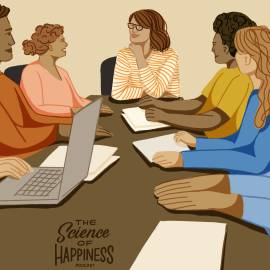
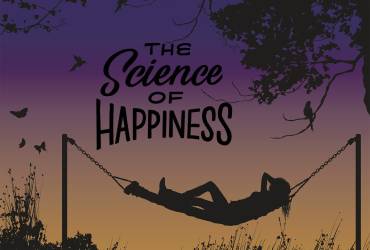
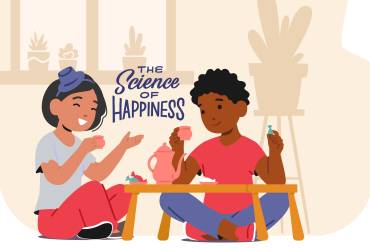
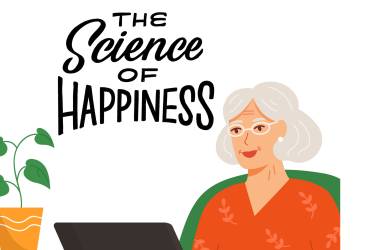
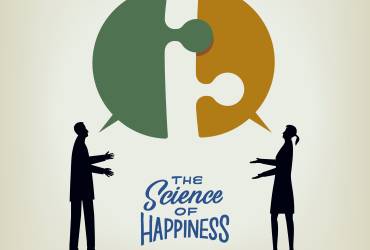
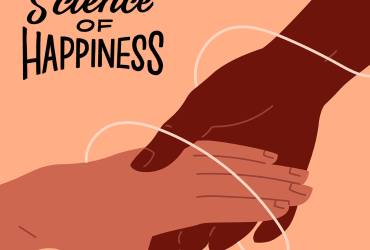
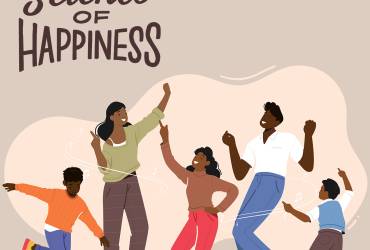
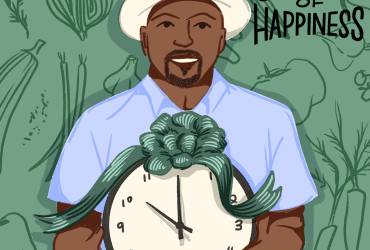
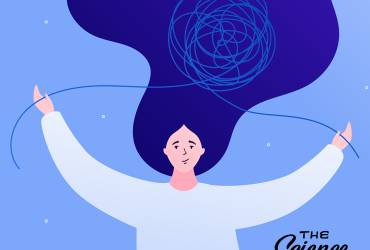
Comments